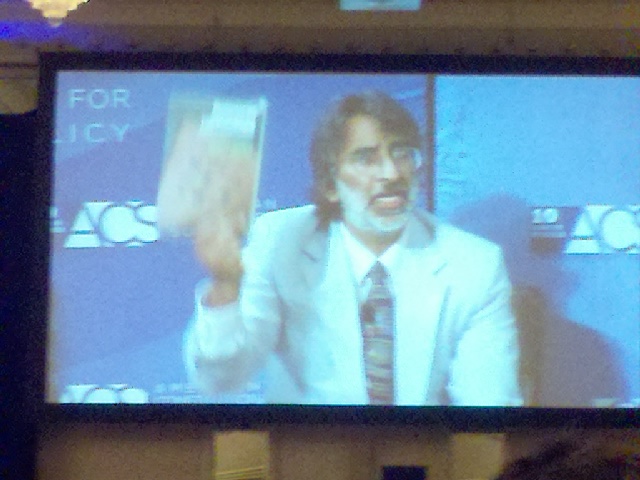In his open letter to Randy Barnett, Akhil Amar holds himself out to be a champion of the Second Amendment. If you just read what he wrote, you would think that he agrees with the outcomes in Heller and McDonald. He writes:
For example, my book champions an individual right to keep a gun in one’s home for self-protection, a right deserving protection against both state and federal officialdom. The Supreme Court’s four most progressive members have consistently and unanimously opposed this right; by contrast, Justice Alito’s opinion for the Court affirming this right in McDonald v. City of Chicago favorably cited my earlier work on this topic six times, and Justice Thomas’s dissent added a pair of additional approving cites.
He chose his words carefully. His work certainly champions an individual right to keep and bear arms–yet he has written for years that the statute in question in Heller was constitutional, notwithstanding the individual right. D.C. had the most draconian gun ban in the nation. If that law passed muster, than any law would be constitutional. Certainly Alito and Thomas cited Amar’s opinion, but they come to totally different conclusion. That is a very careful choice of words that does not give a full impression of how he viewed Heller in McDonald.
I quote a section from Pandora’s Box that addresses Amar’s earlier work on the different notions of the right to keep and bear arms in 1791 (as applied to the federal government) and in 1868 (as applied to the states):
Professor Akhil Amar notes the “analytic difficulties posed by incorporation” of the right to keep and bear arms.263 While the “1789 instantiation of the right was intimately connected with federalism concerns about a federally controlled standing army that might seek to overawe state-organized militias,” the 1868 version was substantially different, as the drafters “wanted to use precisely such an army to reconstruct recalcitrant southern states.”264 Amar stresses that the right to keep and bear arms was considered at the Founding to be a “political” right, whereas by the end of the Civil War it had become a “civil” right.265
Professor Amar contends that the right to keep and bear arms is a “paradig- matic ‘privilege’ of ‘citizens of the United States’” but considers the right in 1791 and the right in 1868 as meaning different things.266 He writes that “at the Founding, the Second Amendment sounded in federalism . . . [but] the world looked differently to Reconstruction Republicans” after the Civil War.”267 While political rights would include such rights as the franchise, office holding, and jury service, Amar views the Founding-Era right to keep and bear arms as categorically different than the right of free speech and free exercise of reli- gion.268 He supports his theory on the collective model account of the Second Amendment, which is based on the premise that the right to keep and bear arms is tied to militia service.269
I don’t think Amar ever said that the statute in question in Chicago was unconstitutional.
Interestingly, Amar said nothing about Barnett’s position on the ACA, which I commented on here. Maybe that’s coming later in the week.
In any event, Amar has some history of going after Barnett. At the 2010 Federalist Society student symposium, Amar ripped into Randy, identifying slight errors in his book, Restoring The Lost Constitution. These errors include that Barnett wrote that Bingham was born in Ohio; he was born in New York. Also Randy misspelled Lyman Trumbull. Amar also criticized Randy for dedicating the book to James Madison, “a slaveholder.” Coincidentally, During that tirade Amar said of Richard Epstein that “he does not deserve respect as a historical originalist.”
Amar specifically challenged the motivations of originalists, and said something to the effect of “I am skeptical of people who claim to be originalists when the intent always turns out to be liberal when they are liberal, or conservative when they are conservative.”
This seems to be similar to the charge Randy made in his review: “judging from this book, the unwritten Constitution just happens to agree with everything Akhil Reed Amar believes is right and good.” Amar calls this one of Randy’s “harshest” lines. Good for the goose?
At the 2011 ACS National Convention, Amar waved around a copy of Barnett’s book. I forget the context, but Amar said something to the effect of “Randy, if you’re here, show me where in the Constitution it says this.” He also waved around a copy of David Bernstein’s book (he said it is debilitating, not rehabilitating Lochner). In case you are wondering, Amar travels with a backpack full of books, including several copies of his own books.
Though Amar also waved around a Cato Constitution–definitely a libertarian constitution.

I look forward to more of Amar’s posts. Nothing too objectionable in his post about free speech, though he goes after Judge Posner for not citing his work.
Now, it is hard to blame Posner for being unaware of evidence presented in a book still in page proofs when he set out to skewer Scalia. It is easier to blame Posner for completely ignoring earlier versions of this evidence in my previous two books, and in a whole slew of articles that I wrote over the last twenty years.
Let’s see if this sets off a battle royale. Posner v. Amar. There will be blood.
